5. The Trilogy of Loneliness
Movies: La Strada (1954), Il Bidone (1955), The Nights of Cabiria (1957)
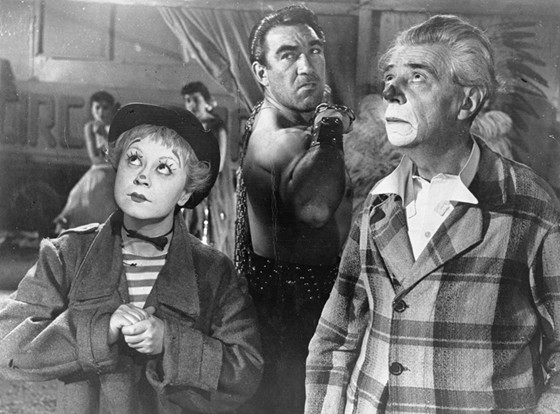
This trilogy directed by Federico Fellini has two of his most iconic films (“La Strada” and “The Nights of Cabiria”) and one of the most underrated in the maestro’s career: “Il Bidone.”
These three movies can be seen as a transition from Italian neorealism for focusing on deepening our understanding of the characters being portrayed (but not meaning that the social focus of this very important movement in film history is completely abandoned by the maestro).
From the girl who is sold to an entertainer in “La Strada,” to a trio of con-men with big dreams in “Il Bidone,” and a woman robbed and left by her boyfriend that tried to kill her who still is in search of happiness in “The Nights of Cabiria,” this trilogy is about loneliness as it is about having faith in a better future.
Focusing on these characters that are outsiders of their society, The Trilogy of Loneliness explores their personas, their wishes and their hopes in a way that it also examines the place they are at. With “La Strada,” “Il Bidone” and “The Nights of Cabiria”, Fellini delivers without a doubt one of the best trilogies of all time.
4. The Dollars Trilogy
Movies: A Fistful of Dollars (1964), For a Few Dollars More (1965), The Good, the Bad and the Ugly (1966)
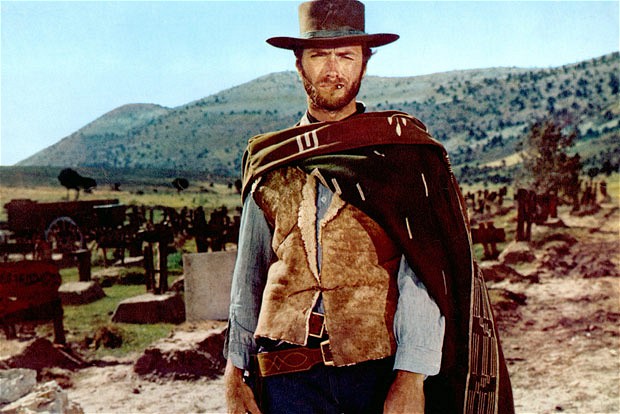
This trilogy, helmed by master Sergio Leone and starring Clint Eastwood, is responsible for some of the most iconic scenes in film history and for creating the legendary character The Man with No Name.
The mise en scène of these films are so unique that this trilogy is a landmark in the subgenre of western called western all’italiana (the spaghetti western genre). With three movies where Eastwood plays The Man with No Name, The Dollars Trilogy is simply brilliant.
Greed, bounty hunters, guns, pride and, of course, hats and boots are some of the elements brought to the screen with great directing by Leone. From the first movie of the trilogy, “A Fistful of Dollars,” based on Akira Kurosawa’s classic film “Yojimbo” (1961) to the iconic battle in “The Good, the Bad and the Ugly” with Ennio Morricone delivering probably the best music made in the history of film, this trilogy is mandatory for any cinephile and definitely deserves to be on this list.
3. The Godfather Trilogy
Movies: The Godfather (1972), The Godfather Part II (1974), The Godfather Part III (1990)
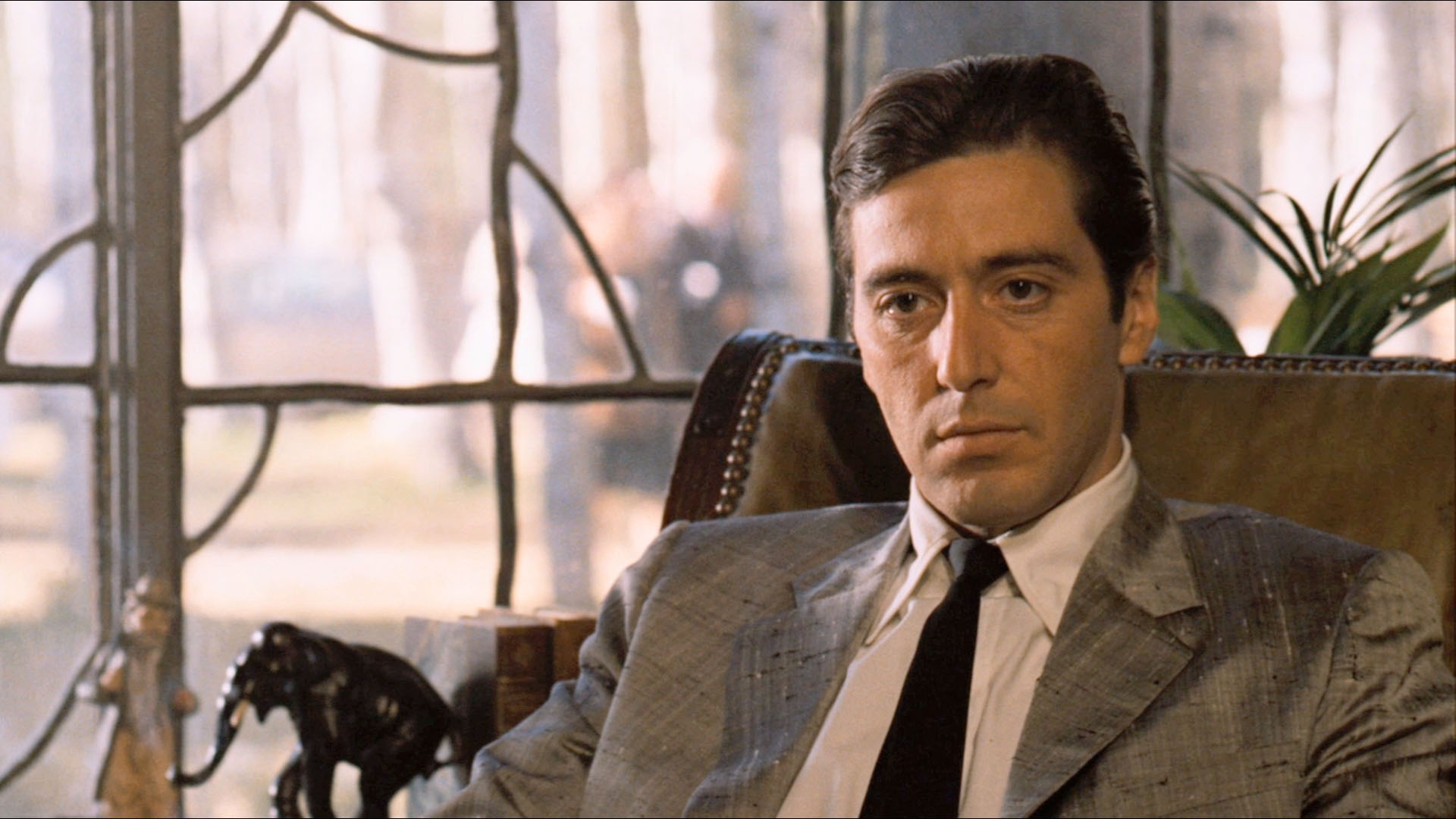
This is probably the best known film trilogy in history. Its influence on pop culture and on many films that came after it is truly undeniable – not to mention that these three movies are simply brilliant.
Directed by Francis Ford Coppola and based on the book written by Mario Puzo, The Godfather Trilogy follows the story of the Corleones, an Italian-American family that becomes one of the most important families in organized crime in the United States.
With amazing performances by Al Pacino, Marlon Brando, Robert De Niro, Diane Keaton, Robert Duvall, James Caan, John Cazale, Andy Garcia and more, The Godfather Trilogy is a valuable directing lesson by Coppola.
Its study of character arc, especially the figure of Michael Corleone (Pacino), a man who tried to stay away from crime at first but became the ruthless and extremely violent head of the Corleone family, is one of the best in cinema history and alone guarantees a place for The Godfather Trilogy on this list. Three films and three masterpieces by Francis Ford Coppola.
2. The Three Colors Trilogy
Movies: Blue (1993), White (1994), Red (1994)
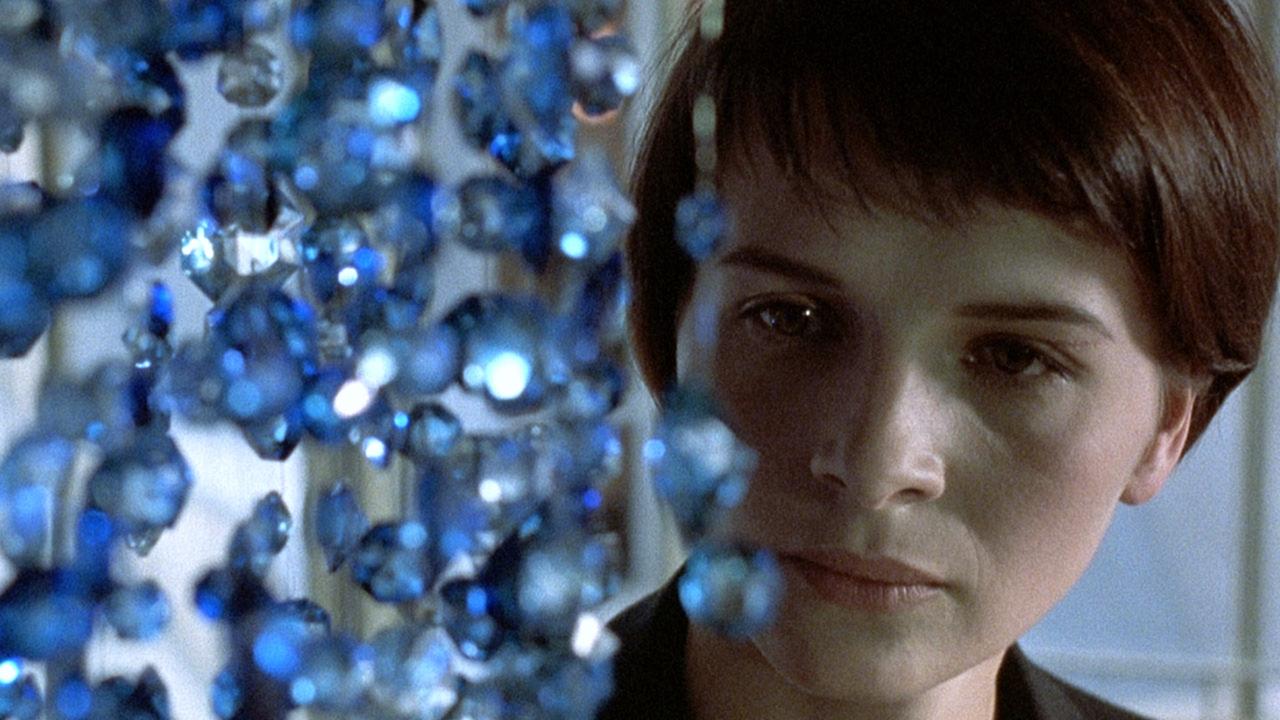
It is intriguing that Krzysztof Kieślowski, one of the greatest directors of the 20th century, ended his career with one of the best trilogies ever made.
Based on the colors of the French flag, respectively representing liberty (blue), equality (white) and fraternity (red), The Three Colors Trilogy follows three stories that share an interesting connection, although working separate from each other.
From a woman who loses her daughter and husband in an accident (“Blue”), to a man who develops a revengeful plan against his ex-wife after their divorce (“White”), and a model who meets a retired judge who spies on his neighbours (“Red”), the humanistic approach in this trilogy is superb.
Love, loss, present, future, past. Those are all themes present and elements brought to the screen by Kieślowski in The Three Colors Trilogy, a series of films that without a doubt deserves to be considered among the best trilogies in film history.
1. The Trilogy on Modernity and its Discontents
Movies: L’Avventura (1960), La Notte (1961), L´Eclisse (1962)
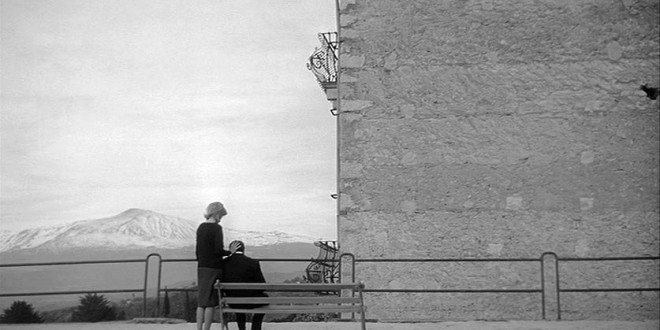
Is this the best movie trilogy of all time? If it is not, it should without a doubt be considered among the best.
Directed by one of the greatest filmmakers in history, Michelangelo Antonioni’s Trilogy on Modernity and its Discontents has an unique and astonishing approach on incommunicability.
With powerful performances by Monica Vitti, Jeanne Moreau, Marcello Mastroianni and more, this trilogy has such a powerful existentialist nature, and its visual is so bewildering that its slow paced narratives becomes even more stunning.
A lover and a friend get closer after a woman disappears, a marriage full of infidelity, and a woman who meets a man with a very materialistic nature are the plots used by Antonioni to explore and approach the lack of communication and its consequences.
The Trilogy on Modernity and its Discontents are definitely masterpieces made by one of cinema’s greatest masters, and should without a doubt be watched again and again and again by anyone who loves cinema.
Author bio: Vítor Guima is a filmmaker, writer and musician from São Paulo, Brazil. Every day he watches a movie, reads a few pages from a book, listens to an album and freaks out with the feeling of not having enough time to see everything. You can follow him on Instagram on @ovitorguima.